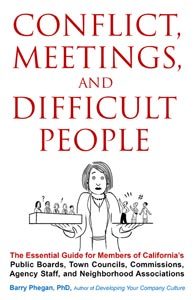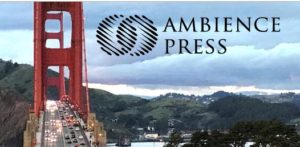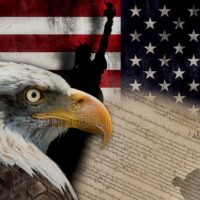 Freedom
Freedom
We toss the word around as if we know what it means. Each user has a meaning in mind, while listeners might have another. But I see a mounting impatience with cries for freedom intended to deflect our attention from antisocial behavior more accurately described as “Freedom from Democracy”.
In these examples, which freedom do you want?
“Freedom from vaccination!” (And therefore your freedom to infect others.)
“Free markets!” (So corporations can freely sell sugary foods to innocent children leading to diabetes, sell painkillers to vulnerable adults leading to addiction and suicide, dump toxic wastes bringing climate change, illness, and ecological destruction, or drive wages to the bottom.)
“Freedom of expression and beliefs!” (Used as justification by the prior administration to rouse alienated, tribalized white males to storm Congress, to reverse a democratic election, and install an autocratic President.)
Historic Roots
While trying to understand this conundrum and what looks like growing political craziness, I came across Joe Klein’s New York Times Book Review, “Why the past is never past”, 10/17/21. He mentions historian David Hackett Fisher’s book “Albion’s Seed: Four British Folkways In America.”
Fisher lays out “Freedom’s” cultural roots. It’s a fascinating story that explains why it is so hard to make sense of the conflicting meanings lying beneath this hot-button word. Klein writes:
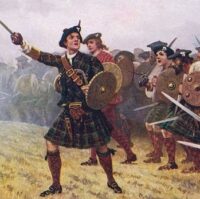 “The Appalachian Hill country and much of the Deep South were settled by a wild cast of immigrants from the borderlands of Scotland and England. They brought their clannish, violent, independent culture, which had evolved over seven centuries of border warfare. They were, Fisher wrote, ‘a society of autonomous individuals who are unable to endure external control and incapable of restraining the rage against anyone who stood in the way.’ . . . .
“The Appalachian Hill country and much of the Deep South were settled by a wild cast of immigrants from the borderlands of Scotland and England. They brought their clannish, violent, independent culture, which had evolved over seven centuries of border warfare. They were, Fisher wrote, ‘a society of autonomous individuals who are unable to endure external control and incapable of restraining the rage against anyone who stood in the way.’ . . . .
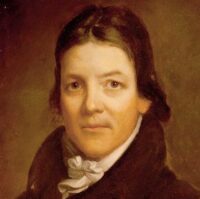 “In New England, it was quite the opposite. “Order was an obsession” for the Puritan founders. Everything was regulated. Local Selectman had to report — that is, to spy — on the domestic tranquility of every family in their jurisdiction. . . . . The Virginian definition of freedom was complex, contradictory — and remains problematic. It was hierarchical, the freedom to be unequal. “I am an aristocrat,” John Randolph of Roanoke said. “I love liberty; I hate equality.” Freedom was defined by what it wasn’t. It wasn’t slavery. It was the freedom to enslave. It was a freedom, granted to the plantation masters, to indulge themselves, gamble and debauch . . . . . .
“In New England, it was quite the opposite. “Order was an obsession” for the Puritan founders. Everything was regulated. Local Selectman had to report — that is, to spy — on the domestic tranquility of every family in their jurisdiction. . . . . The Virginian definition of freedom was complex, contradictory — and remains problematic. It was hierarchical, the freedom to be unequal. “I am an aristocrat,” John Randolph of Roanoke said. “I love liberty; I hate equality.” Freedom was defined by what it wasn’t. It wasn’t slavery. It was the freedom to enslave. It was a freedom, granted to the plantation masters, to indulge themselves, gamble and debauch . . . . . .
Today’s Fruits
Our Supreme Court may soon legitimize states’ freedom to restrict voter freedom. That’s not so strange when you see (above) that American founders believed both these meanings of freedom, though neither is expressly preached today in schools.
Overtly, schools today teach that each citizen has the freedom to vote for the person who best represents their view. Teachers say we have the freedom to express our opinions and live the kind of life we choose. They claim it’s our political right to be free of coercion and enslavement by the power of another. But as we age, we realize that things aren’t quite so clear.
Though we teach these aspirations, there is indeed a class structure — some are born into terrible inequalities from day one, while gerrymandering and other voter limitations distort equal representation. For many, there is no freedom from hunger and desperation. The so-called universal ‘freedom of speech’ ranges all the way from being shot if you’re black to making billions from enabling outrageous lies if you are Facebook. Where is ‘freedom’ taking our democracy?
Guidance from 80 Years Ago
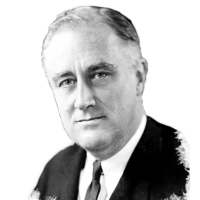 In his State of the Union Address delivered on January 6, 1941: President Franklin Delano Roosevelt stated:
In his State of the Union Address delivered on January 6, 1941: President Franklin Delano Roosevelt stated:
“There is nothing mysterious about the foundations of a healthy and strong democracy. The basic things expected by our people of their political and economic systems are simple. They are:
- Equality of opportunity for youth and for others.
- Jobs for those who can work.
- Security for those who need it.
- The ending of special privilege for the few.
- The preservation of civil liberties for all.
- The enjoyment of the fruits of scientific progress in a wider and constantly rising standard of living.”
Today many politicians seem intent on moving these expectations backward.
How can we help our children make sense of the world around them and be successful in it? Their minds may not be developed enough to understand the psychology behind human behavior or the complexities of politics. After all, it’s not just Fox News that chases ratings by spreading fear. Our schoolchildren cower under desks during armed invader lockdown training. They sit confused during discussions of climate change, a process they have no power to affect, but moves inexorably towards the cliff as politicians continue kicking the can further down the road.
Back to the original question: which freedom do you want? For me, I want the freedom to question without attack back, to discuss with openness and respect, to join together in solving otherwise intractable social issues, a national and state leadership that demonstrates values we would want in ourselves and our family.
PS: These semi-political thoughts are posted into 70 and Older because they are in my mind, part of chewing on life’s cud as I move, hopefully graciously and thoughtfully, towards the end of this amazing experience we call living.
I’d sure like to know how any of you help your children and grandchildren manage today’s anxiety and stress. Just as importantly, how are you managing your own? Please write. It takes helpful guidance from friends to make it along life’s road.
Thank you for reading.
Me,
Barry
Add Your Name below to my list to know when I have posted a new blog.


